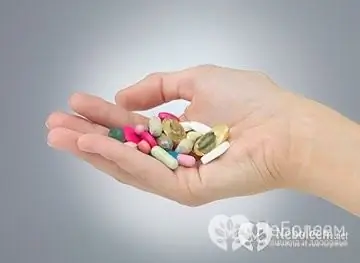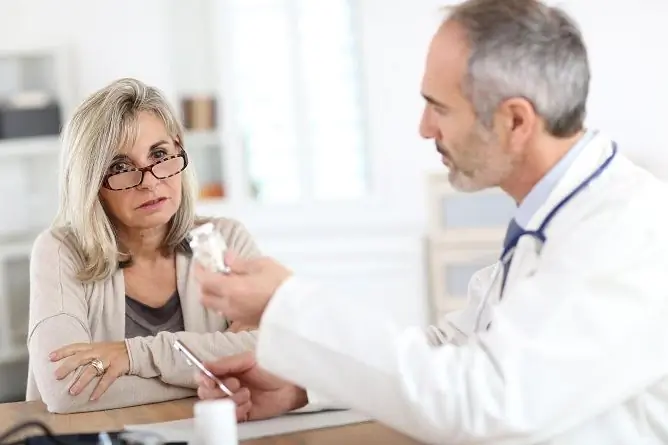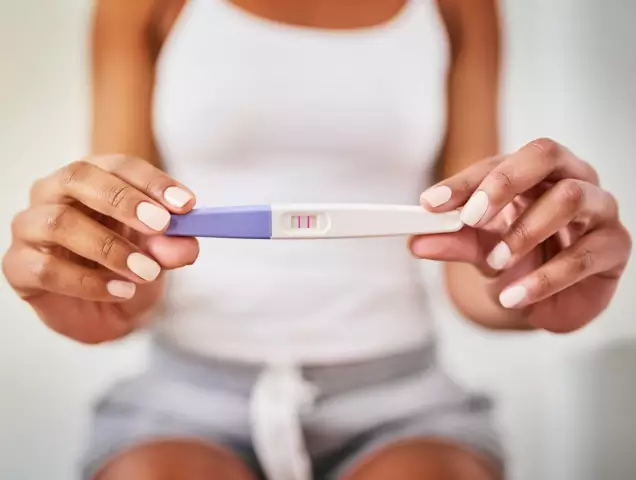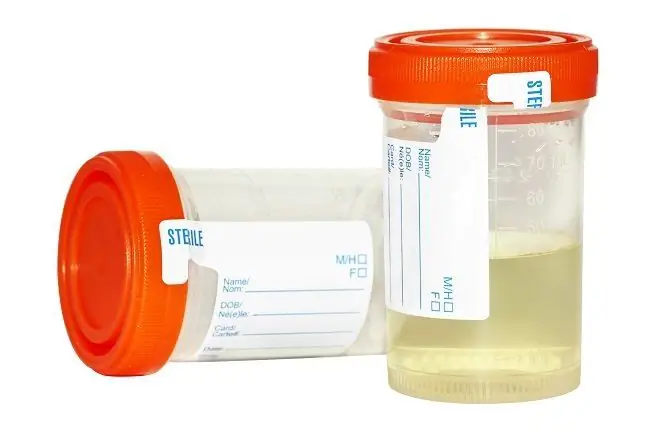- Author Rachel Wainwright wainwright@abchealthonline.com.
- Public 2023-12-15 07:39.
- Last modified 2025-11-02 20:14.
Post-abortion treatment
Since every woman and the circumstances of her abortion are unique, it is impossible to predict in advance exactly what kind of post-abortion treatment will be needed, but it will be required without a doubt.

Features of post-abortion treatment
Abortion is a serious intervention that affects various systems in a woman's body. It is highly unwise to self-medicate after it. Most often, doctors prescribe vitamins, contraceptives and antibiotics after artificial termination of pregnancy.
In particular, vitamin therapy is necessary to support a weakened female body for one to three months. Antibacterial treatment after abortion is necessary to eliminate or prevent infection during the intervention. Oral contraceptives are necessary to protect a woman from a repeated incident, as well as to normalize hormonal levels.
In addition, during and after an abortion, a woman may develop certain complications - bleeding, adnexitis, endometritis, infections of the uterine cavity and even peritonitis. Perforation of the uterus is especially dangerous during curettage - it is removed surgically. Violation of the contractile function of the endometrium as a treatment after abortion requires repeated curettage. In turn, the frequent carrying out of such procedures thinns the walls of the mucous membrane of the maca.
Incompletely removed fetal tissues during artificial termination of pregnancy become a focus of inflammation and also require repeated curettage followed by antibacterial treatment after an abortion.
The delayed consequences of abortion are no less formidable. These are adhesions, hyperplasia, fibroids, menstrual irregularities, miscarriage, infertility, the transition of acute diseases to a chronic form, etc. Treatment after abortion in such cases is specific and depends on the nature of the complication that has developed.
Ultrasound after abortion
In order to prevent the remnants of fetal tissue in the uterine cavity after artificial termination of pregnancy, it is necessary to do a control ultrasound after an abortion.
All kinds of pathologies that have appeared or intensified after artificial termination of pregnancy can have very serious consequences. It is also possible to identify them at an early stage using ultrasound.
If a woman's temperature rises, a fever develops, pains in the abdomen, back, headache appear - it is the ultrasound scan after an abortion that will help to navigate the causes of such symptoms and determine the correct treatment.
Candles after abortion
Suppositories after an abortion are prescribed according to indications. In particular, it can be suppositories with an anti-inflammatory effect - Indomethacin, etc. Suppositories after abortion Geksikon can be prescribed for the prevention of infectious and bacterial processes of the endometrium. Suppositories after an abortion can be contraceptive to protect a woman from unwanted pregnancy.
Oxytocin after abortion
Oxytocin after abortion is prescribed to prevent uterine bleeding.

The drug should be prescribed by a doctor in an individual dosage and used in a hospital under medical supervision. Due to the fact that oxytocin stimulates the muscles of the uterus, it is effective in removing the remains of the ovum from its cavity.
HCG after abortion
HCG - human chronic gonadotropin - is produced in the body of a pregnant woman as a kind of protection of the fetus from adverse effects. An analysis for this hormone must be taken after an artificial termination of pregnancy.
HCG after abortion allows you to control the quality of the intervention. If the level of hCG after an abortion remains high, then it can be assumed that the fetus has fully or partially survived.
YouTube video related to the article:
Found a mistake in the text? Select it and press Ctrl + Enter.






